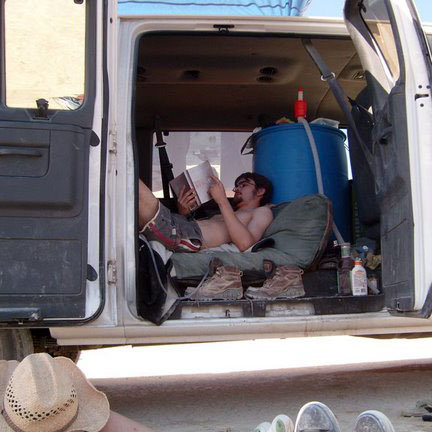"Maybe the time has drawn the faces I recall,
But things in this life change very slowly,
If they ever change at all.
There’s no use in asking why,
It just turned out that way;
So meet me at midnight baby,
Inside the sad café."
-- The Eagles: The Sad Café
I have been thinking about the past recently, not for any particular reason, but rather because the past is my natural habitat. More specifically I've been living out past mistakes, which are less of a home and more of a... penance. Someone once told me that any memory, all memories are painful in one way or another, because they are just that: only memories. It's a sad thought, but somehow it appeals; if the future is a window on uncertainty, then I suppose the past is a locked door on happiness - both the good times and that bad have that bittersweet edge to them, and both are equally gone. How strange that everything should even out like that, but also how fitting - time does not, as I am learning, heal all things, but it does grind them into dust. It has taken me a long time to understand that all dust tastes the same, whether it comes from the desert, the library, the incense burner, whether it lies thick in the dark or floats serenely on shafts of sun. 'Dust to dust' is not a
bad thing, it is merely a
thing, an inescapable truth; dust
is, in a way that we only manage for so short a time.
Once upon a time, my philosophy on life was a common one: you make mistakes and you learn from them, you move on and live a better life. These days, however, I am struggling to see where that ever happens in life: we had one war to end all wars, then we had another - it doesn't seem that we have ever ended anything; genocide happened and still happens when convienient, for all the horror people view it with; the endless spirals of love/knowledge/hate, ignorance/fear/segregation/ignorance, abuse/trauma/abuse and so many more just continue to happen over and over again, no matter how many times we go through them. 'Live and learn' is only half the story; 'live, learn, forget, live' would probably be more appropriate. "
ὅτε ἤμην νήπιος, ἐλάλουν ὡς νήπιος, ἐφρόνουν ὡς νήπιος, ἐλογιζόμην ὡς νήπιος: ὅτε γέγονα ἀνήρ, κατήργηκα τὰ τοῦ νηπίου" - perhaps I am slowly being taught that, in the words of the prophet, "
If our society seems more nihilistic than that of previous eras, perhaps this is simply a sign of our maturity as a sentient species. As our collective consciousness expands beyond a crucial point, we are at last ready to accept life's fundamental truth: that life's only purpose is life itself."
The roads of this type of philosophical wandering are well trodden by giants like Sartre and Nietzsche, men who could express the truth of things far better than I can, but it doesn't really matter - these are just the outworkings of my own thoughts, and I couldn't lay claim to any kind of truth, personal or eternal. But the more I look at things, the more it feels like learning from the past is both a mistake and an impossibility, so quickly does it ameliorate itself into a void of intention and action, the dust of a person we no longer are. That's not to say that we should somehow live only in the moment, have no care for the consequences of our actions, but rather that (and how ironic, for I have always hated postmodernism) truth is relative: it ebbs and flows with every passing second, and how we act at one moment becomes irrelevent in determining how we act in another. The past is closed to us precisely because it
was and no longer
is; how can we force our life into a pattern based on what is no longer true? Too many people live with one eye on the past when life today depends at least two on the road in front of you, if not more.
I have enough mistakes in my past for several people but, if I'm honest, I'd have to say that they make for some of the best memories I possess. Whatever turned potential into problems, I can truthfully say that I'd rather have made the wrong choice than refused to choose out of fear or, even worse, 'experience.'
Better to have loved and lost...I am a man of many words, most of them rubbish. This is, I suppose, the primary reason I write poetry; as one of my good friend once said to me, "I can't think of a better way to waste your language." Here are my mistakes, here is my dust;
I make a point of inhaling deeply and moving on. It's an
interesting experience.
FOR YOU, I'LL SPEAK FRENCH'Meet me under the clock tower at one'
she said, and we laughed because we're poets,
drunk on a success that seals up the lips:
stoppered together, drinking of life's lees,
a bottle brim-full of clich
é and pinot.
I'm no Girardot, but as I wait,
trenchcoat-clad and dusted with the clouds,
the mind makes Arcs for us to shelter in:
a man can sit on old stone steps a while,
and shape a Notre Dame from every brick.
Our running sun reflects your ruby eyes,
darkling with the angel-painted mist;
I take you in your lover's arms and say,
"
Ce n'est pas Paris, mon amour de dame":
there's no telling where rainclouds will stop.

